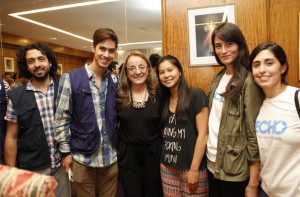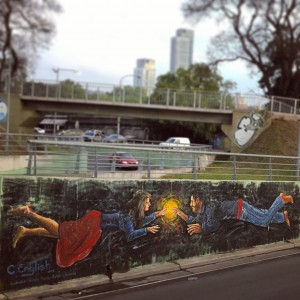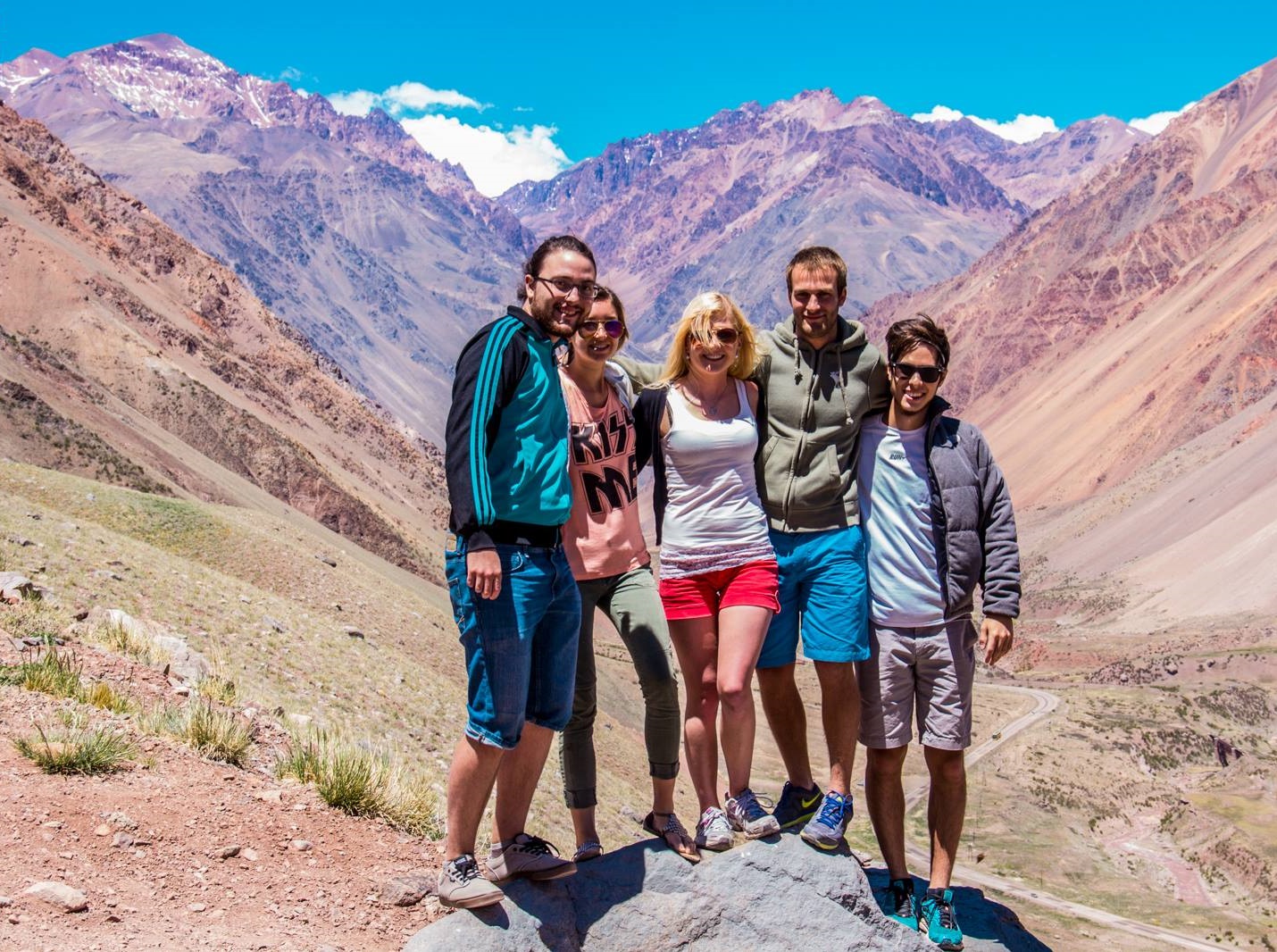 Today was the day that I realized why I came to Argentina. And it didn’t have to be unbelievably adventurous! I started off the day waking up to breakfast after sleeping in. After a quick shower, I repeated my routine of checking my e-mail, reading the news, and relaxing before heading off to work in Plaza Primero de Mayo with Salud en la Calle (Health in the Street). It was a hot and sunny spring day. I stopped by a shop to buy a couple of pastries and fruit and enjoyed my treat on a park bench as I patiently waited for the team to arrive thirty minutes late (which I expected because that was frequently on time or early in my Argentinean experience).
Today was the day that I realized why I came to Argentina. And it didn’t have to be unbelievably adventurous! I started off the day waking up to breakfast after sleeping in. After a quick shower, I repeated my routine of checking my e-mail, reading the news, and relaxing before heading off to work in Plaza Primero de Mayo with Salud en la Calle (Health in the Street). It was a hot and sunny spring day. I stopped by a shop to buy a couple of pastries and fruit and enjoyed my treat on a park bench as I patiently waited for the team to arrive thirty minutes late (which I expected because that was frequently on time or early in my Argentinean experience).
Next, I met two guys named Sebastian and Hector at the mobile unit. We briefly talked about life and our individual experiences. It turns out Sebastian grew up in L.A. and moved to Argentina when he was 31. Talking with him made me realize how fortunate I am with my opportunities, my lifestyle, my family, etc. Anyways, he told me how hard it was to find work in Buenos Aires, especially as an older person (of 41 years instead of some 25-year old). He would work maybe 4 or 5 hours for 100 pesos! That’s nothing! He likes that there are programs like Medicos del Mundo (MDM) in Buenos Aires since he never encountered anything like it back in the United States. But he misses the U.S. where his family is at, where he can make money and drive his own car, and where he can have a mix of most cultures especially in terms of food (Mexican food in particular!). Here in Buenos Aires, there’s mostly Argentine and Italian food. Hector said that he loves the fact that the people are friendly – if you ask for help on the street, the majority of people will help you (but any place has bad people too).
 Back at the office of MDM, I talked with Raul, my supervisor, about two papers Infancia en Indefension and Notas Sobre infancia y teoria: un enfoque lationamericano. These papers discussed a great asymmetry between adults and children where we view childhood as a transition into adulthood, where we are superior to children and adolescents, that children are incomplete, immature, and must obey our authority. However, “childhood” is an idea, a social construct that we created, and has not always existed (think before schools and educational institutions back to when everybody in a family worked to help the family no matter their age). Why do we treat children (and their opinions) as inferiors? We should listen to them and observe things in their own terms from their perspective, not from our perspective centered on how an adult would view things. Think of how an anthropologist tries to study other cultures from inside that culture, not from his/her outside point of view.
Back at the office of MDM, I talked with Raul, my supervisor, about two papers Infancia en Indefension and Notas Sobre infancia y teoria: un enfoque lationamericano. These papers discussed a great asymmetry between adults and children where we view childhood as a transition into adulthood, where we are superior to children and adolescents, that children are incomplete, immature, and must obey our authority. However, “childhood” is an idea, a social construct that we created, and has not always existed (think before schools and educational institutions back to when everybody in a family worked to help the family no matter their age). Why do we treat children (and their opinions) as inferiors? We should listen to them and observe things in their own terms from their perspective, not from our perspective centered on how an adult would view things. Think of how an anthropologist tries to study other cultures from inside that culture, not from his/her outside point of view.
We need to start thinking of childhood as a permanent state not a transition, as young adulthood, as something that represents self-improvement instead of trying to mold a child into our concept of an adult. Children should not be independent but autonomous. Children have the ability to change the world. It’s time we start recognizing that, treating them like that, and allowing their talent to flourish.
I came to Argentina for these critical thoughts and realizations about myself, my society, the rest of the world, and potential future professions (specifically in health). I’m so glad to have had this conversation with Raul and to have read these papers and seen a small part of the system in Buenos Aires in Salud en la Calle. It took a long time (5.5 weeks) to make this small understanding but it wouldn’t have happened if I exclusively got the project I originally wanted. And that’s part of the challenge – making other people, including myself, realize the importance of this idea, this project, and our work when everybody else has their own things they consider important, their own priorities. For me, moments like those I experienced today definitely made the trip worth it in a professional, personal, and cross-cultural sense that I might not get in a study-abroad program.
(5.5 weeks) to make this small understanding but it wouldn’t have happened if I exclusively got the project I originally wanted. And that’s part of the challenge – making other people, including myself, realize the importance of this idea, this project, and our work when everybody else has their own things they consider important, their own priorities. For me, moments like those I experienced today definitely made the trip worth it in a professional, personal, and cross-cultural sense that I might not get in a study-abroad program.
– Alicia Kirchner, Buenos Aires
